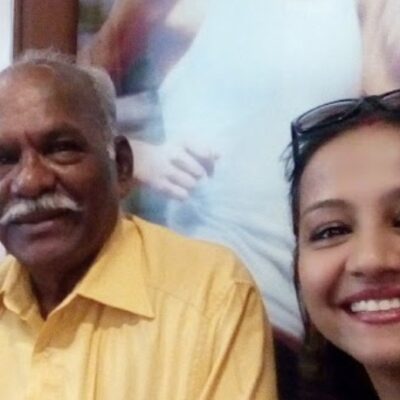One of the first ‘self-help’ category books I read was 7 habits of highly effective people. It was very effective for many years. Then I got in the habit of the 7 habits and fell asleep, to it. And lost it.
Definition: A habit is a routine of behaviour that is repeated regularly and tends to occur subconsciously. It is a settled or regular tendency, especially one that is hard to give up.
For years now I am watchful of anything becoming a Habit. By virtue of its definition.
For example, I had a ‘Habit’ of watering my garden everyday, but when I moved to a different space which did not have so many plants, I had a hard time letting go of that “habit”. And I was miserable. We can insidiously become slaves to our own habits.
As opposed to that – is Practice. Both, Habits and Practice, have the contours of discipline, definition, frequency and duration. And yet, there is a world of difference. Habits tend to put us to sleep – Practice keeps us awake. Habits go on autopilot – Practice takes work, in remaining present.
Have you noticed when we are habitually doing something , anything, like writing, drawing cooking, cleaning, driving…we usually don’t notice what we are doing?
As you can tell, I am a big advocate of Practice and the value of having and nurturing them. I know I show up in my practices more fully. I realize many of us have an energy of ‘discipline’, good habits, and must/should do – and therefore, guilt when not done around it.
Many of us (especially now) have or are encountering times when we feel as though we are in the middle of an immense storm. The sea inside is raging, the winds are fast and there is no sign of predictable land anywhere in sight. The anxiety of this unknown ambiguous terrain, and not knowing what to do, can be very hard to manage mentally and emotionally.
Practice helps us to root and to anchor our internal presence onto something solid. Like a ground of our own. We may not be able to control the storm or the water, but we can cultivate the grip of our holdfast through our steady practices. It can be the ‘known’ in the unknown.
A few things about Practice
- Practice is vesselling – Coming from the process of alchemy – Old alchemists recognized that all deep work requires a holding space, a secure vessel within which the work is carried out. Vessels both contain and separate – allowing us to attend to matters at hand, without being overwhelmed. At least for that time. (Francis Weller)
The container must be constructed intentionally, slowly and with a sense of sacred. There is no Guilt or shame in practice.
As I sit here to write, I first created a “Space” intentionally. With things that make me feel good. Colored pens, fairy lights, plants. And I sit here and wait. Its’ like a “Portal” where things from the Unknown come in, accepting the gentle yet firm invitation
- Practice is a gateway to deepen our connection to the great Unknown. We may get in touch with this well inside of us, that may be a matter of grace or faith, but to keep the water running we have to keep returning – to it through practice – (keep returning to the drawing book, to the yoga mat, to the writing desk, to the singing, to the prayer, to whatever form of practice you choose)
- Practice invites humility– When we show up with regularity, we are also saying I am NOT perfect. I need practice. And so we are constantly awake and learning and present as we keep clearing the table for new arrivals.
- Practice sets you free. When in the container, you can be you. You don’t have to worry (for that period of time) about what is happening outside. There is a momentary land, n which we can make new sense. You don’t have to worry about knowing everything or being perfect at it. It takes away any pressure of should, have to , guilt, shames etc.of being perfect.
This thing about Practice is, you can START it anytime. You cannot start a Habit , anytime.
As I think about this, I am pondering about what all other “habits” I am salve to . I am in the habit of thinking of myself a “certain” way – I am not good a maths for example. Or I am “like this only”.
These statements that I have become habituated to now have become my prison. Likewise, my food, books, some relationships, ideologies, . hurts many of them have become habits. Some I know are not good and yet now I cannot break free. Last night at a friend’s place, the conversation slipped into political debate and I noticed a sudden shift in decibel levels and energy.
We have also become habituated with things that are no longer good for us. Thinking habits, I find are the most dangerous of them all. I guess habits make us lazy.(earlier I called that optimisation). As they have become like the old worn out blanket or doll that gave us comfort as children (I learnt they are called transitional objects), and yet some we still hold on to.
- Maybe some habits were transitional Objects, and we need to transition out.
- Maybe its time we Practiced growing up.
- Maybe we make a list of 7 Habits to give up.
and Oh, so that the practice does NOT become a habit, our minds can be sneaky at times, I have another Meta Practice. “Practice the process – and then process the practice”… Phew!!
I remember these lines from one of my favourite poem by Rabindranath Tagore..
Where the clear stream of reason has not lost its way
Into the dreary desert sand of dead habit
Where the mind is led forward by thee
Into ever-widening thought and action
Into that heaven of freedom, my Father, let my country awake.






7 Comments